UK and US carry out air strikes on Houthi sites in Yemen
- Published
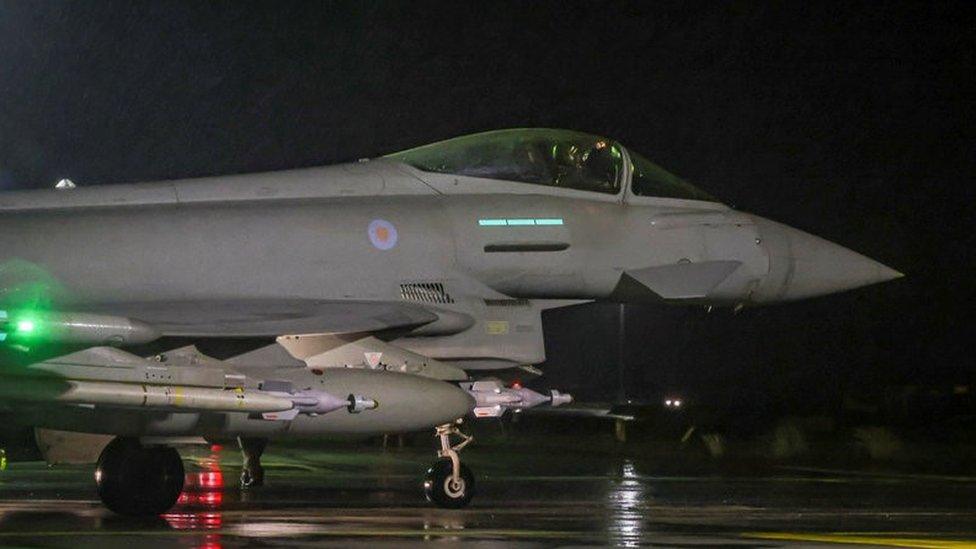
The UK has joined US forces in a second series of air strikes against Houthi sites in Yemen, in the Middle East.
The first strikes, earlier in January, came after several weeks of fighters firing rockets and drones at ships moving around in the Red Sea. Following those joint UK-US strikes, some attacks on ships have continued.
The Houthis control most of Yemen and say they are supporting Hamas in Gaza by targeting shipping heading to Israel.
The UK government has said that military action is necessary to protect people on board ships and the movement of trade around the world. Defence secretary Grant Shapps described the latest strikes as "self defence" against the Houthis' "intolerable attacks" on merchant shipping.
Other countries including The Netherlands, Australia, Canada and Bahrain helped support the missions.
Who are the Houthis?
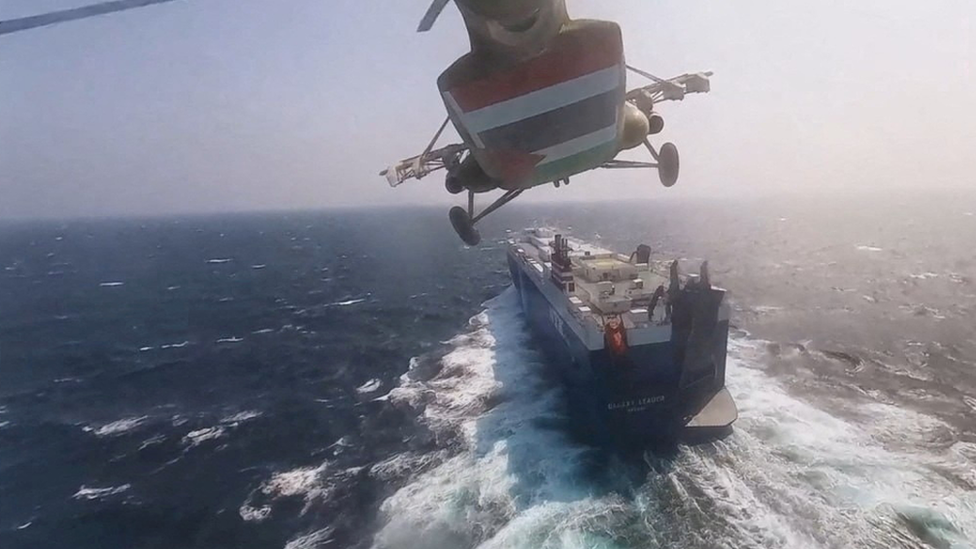
A Houthi military helicopter flies over a ship in the Red Sea
The Houthis are a political and military group which controls a large part of Yemen. They've been fighting a civil war against the Yemeni government since 2014.
The majority of Yemen's population lives in areas under the Houthi movement's control, which also includes Yemen's Red Sea coastline.
Yemen's internationally-recognised government - the Presidential Leadership Council - is now based in Saudi Arabia's capital, Riyadh.
The government in Yemen has been supported in fighting the Houthis by a group of Arab countries led by Saudi Arabia and the United Arab Emirates.
Why is the Red Sea so important for shipping?
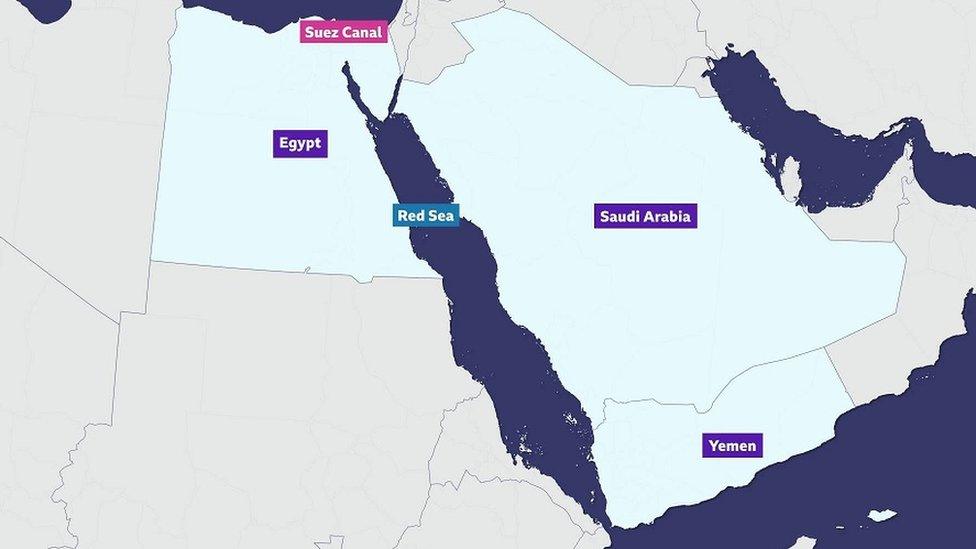
The Red Sea is an important world trading route for ships
The Red Sea is one of the world's busiest shipping lanes, with giant tankers transporting goods, fuel and parts which end up in shops and businesses around the UK, Europe and other parts of the world.
These giant ships often come from places like China, past Yemen, through the Red Sea, through the Suez Canal and into the Mediterranean Sea.
Why the US and UK have been carrying out air strikes on Yemen
The attacks on shipping began after the start of the Israel-Hamas war on 7 October. The Houthis declared their support for Hamas and said they would target any ship taking goods travelling to Israel, or with Israeli links, saying it was a "legitimate target".
However, BBC correspondent Yolande Knell says many commercial vessels that have been targeted appear to have "no such connection".
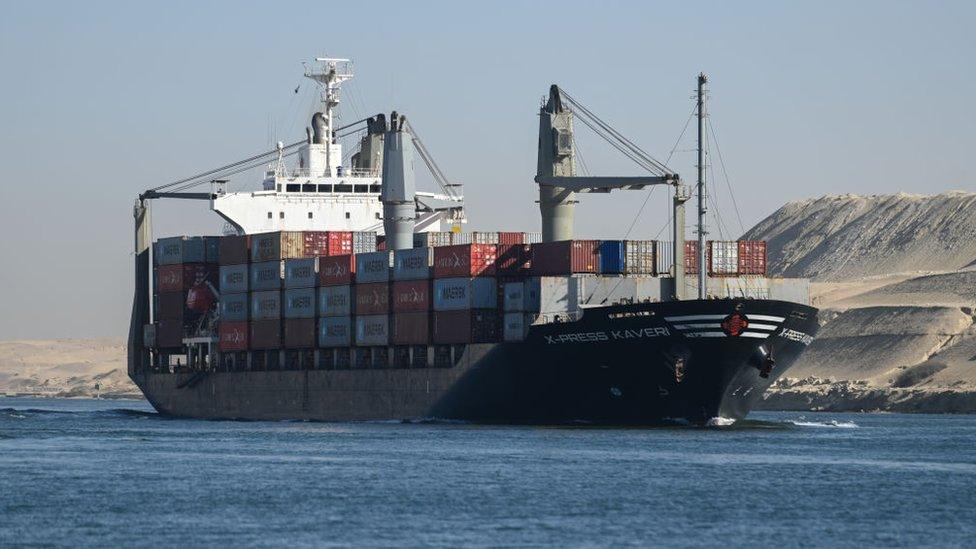
Major global shipping firms have now started moving their vessels away from the Red Sea.
That means delays and extra costs for moving the goods, which will make them more expensive for people to buy at a time when the cost of living crisis, external and inflation are still a problem for people in the UK.
UK Armed Forces minister James Heappey said: "Whatever you think of the Houthis' cause and their justification … we cannot allow them to seek to choke off global trade ... to achieve whatever their political and diplomatic aims are."
He says the need to defend supply chains is particularly important at a time when disruption from the pandemic and the war in Ukraine are still causing inflation around the world.
What have politicians said about the airstrikes?
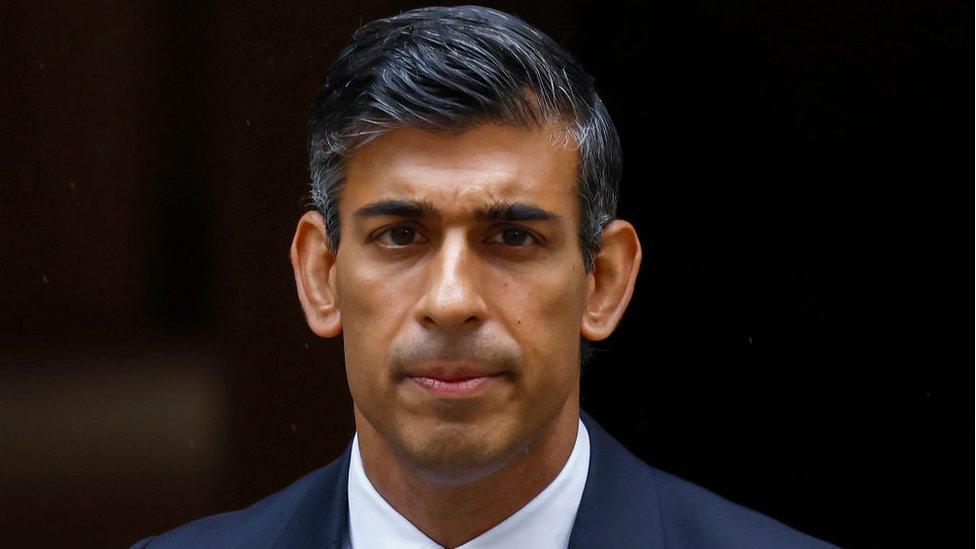
UK Prime Minister Rishi Sunak has said air strikes were "limited, necessary and proportionate"
A joint statement issued by the UK and US governments said it had carried out "an additional round of proportionate and necessary strikes" against the Houthis.
The statement added: "Our aim remains to... restore stability in the Red Sea, but let us reiterate our warning to Houthi leadership: we will not hesitate to defend lives and the free flow of commerce in one of the world's most critical waterways in the face of continued threats."
UK Foreign Secretary David Cameron added that Britain and the US want "to send the clearest possible message" that their words will be supported by actions.
In response to the strikes, the Houthi's military spokesman has said that "these attacks will not go unanswered or unpunished".
After the first wave of strikes, UK Prime Minister Rishi Sunak said the UK action against Houthi military sites were "limited, necessary and proportionate".
He blamed the Houthis for "a series of dangerous and destabilising attacks against commercial shipping in the Red Sea, threatening UK and other international ships, causing major disruption to a vital trade route".
Although the opposition Labour Party said it supported the initial action, some other politicians were critical, saying it should have been discussed in Parliament first. Parliament also wasn't told in advance about the second wave of strikes.
Speaking in parliament after the first strikes, the prime minister said that joint US-UK strikes on Houthi targets in Yemen were intended as a "limited, single action" but also said that the UK "will not hesitate to protect our security, our people and our interests where required".
